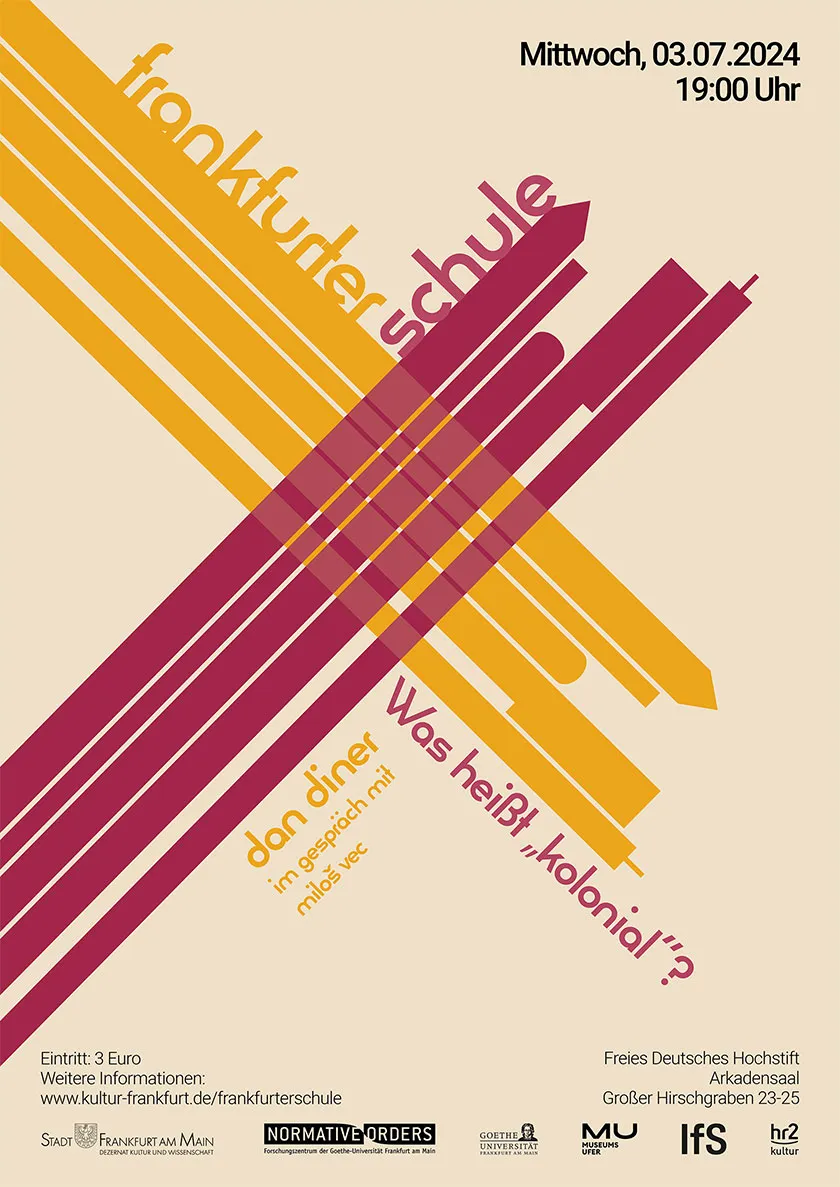What does “colonial” mean? On the significance of a historical qualification
Dan Diner (Professor Emeritus of Modern History at the Hebrew University of Jerusalem) in conversation with Miloš Vec (Professor of Legal and Constitutional History at the University of Vienna)
Today, the word “colonial” is used in so many different ways that it can be described as a veritable semantic inflation. Originally used for ‘overseas’ conditions of superiority and subordination, it has expanded to include a myriad of relationships of domination – both internal and external. The attribute “colonial” thus loses its original analytical meaning and degenerates into an all-purpose buzzword. The epistemic arsenal of the “social” and “national”, which originated in the 19th century and was essentially used to interpret hierarchically structured lifeworlds, is displaced. In the process, the core of real colonial constellations, such as those associated with the “discoveries” of European expansion in the early modern period and the conquests emanating from Europe in the age of colonialism in the 19th century, are lost. The event aims to address this extremely topical subject with the intention of enlightenment. The focus is on the history, concept and political use of phenomena associated with the “colonial”. Past and present thus enter into a dialog of knowledge.
Admission 3 Euro
Further information: www.kultur-frankfurt.de
—
About the “Frankfurt School” series
Social norms, manifested in institutions and orders, form the foundation of our social and political coexistence. In the first half of the 20th century, the so-called Frankfurt School set out to take a holistic and (ideologically) critical look at these norms and their contradictions in the sense of a comprehensive “critical theory” – an approach whose significance and international impact remain unbroken to this day. But what does the Frankfurt School, which has always combined social analysis with ideological criticism, have to say about the current state of society? What answers does the so-called “third and fourth generation” provide to global crises and conflicts?
The “Frankfurt School” series will continue on a quarterly basis in various cultural institutions in Frankfurt. Guests are personalities who – trained in “Frankfurt thinking” – take a stand on current problems.



